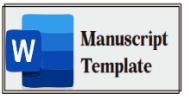TREND PENELITIAN AKUNTANSI SYARIAH DI INDONESIA
Abstract
Keywords
Full Text:
PDF (Bahasa Indonesia)References
Ali, S. N. (2008). Islamic Finance and Economics as Reflected in Research and Publications. Review of Islamic Economics, 12(1): 151-168.
Asrori. (2002). Akuntansi Syariah Bidang Baru Studi Akuntansi dalam Konteks Epistimologi Islam. Jurnal Ekonomi dan Manajemen, 11(2).
Choudhury, M. A. (2005). Islamic Economics and Finance: Where do They Stand?. The Islamic Quarterly, 49(4) 247-280.
Dima, S., David, D., & Paiusan, L. (2010). Specific Features of Islamic Accounting and Cultural Paradigm. MPRA, 1-20.
Hutagalung, T. B., & Utomo, D. C. (2017). Meta-Analisis Variasi Penelitian dari Peneliti Akuntansi di Indonesia. Diponegoro Journal of Accounting, 6(4): 352-362.
Kamla, R. (2009). Critical Insights Into Contemporary Islamic Accounting. Critical Perspectives on Accounting, 20(8): 921-932.
Maali, B., & Napier, C. (1997). Twenty Five Years of Islamic Accounting Research: A Silver Jubilee Review. Accounting Auditing & Accountability Journal, 10(4): 481-531.
Martani, D., & Al Irsyad, R. (2013). Analisis Publikasi Artikel Pada Jurnal TheAccounting Review, Journal of Accounting and Economics, dan Journal of Accounting Research Tahun 2008-2012. Simposium Nasional Akuntansi XVI.
Murtiyani, Siti. (2009). The Historical Fact And Development Concept Of Shariah Accounting. Jurnal Mukaddimah, 15(26).
Mustofa. (2013). Tren Penelitian Akuntansi Syariah di Indonesia pada Awal Abad 21. Skripsi tidak diterbitkan. Surakarta: Universitas Sebelas Maret.
Napier, C. (2007). Other Cultures, Other Accountings? Islamic Accounting From Past to Present. In 5th Accounting History International Conference, Banff, Canada, 9-11.
Napier, C., Roszaini, & Haniffa. (2011). An Islamic Perspective of Accounting: Introduction and Overview. Islamic Accounting, 13-20.
Oler, D. K., Oler, M. J., & Skousen, C. J. (2010). Characterizing Accounting Research. Accounting Horizons, 24(4): 635-670.
Sri, N.W. (2011). Akuntansi Syariah di Indonesia. Jakarta: Salemba Empat.
Supomo, B., & Indriantoro, N. (2002). Metodologi Penelitian Bisnis. Yogyakara: BFEE.
DOI: http://dx.doi.org/10.15548/al-masraf.v3i2.194
Refbacks
- There are currently no refbacks.

This work is licensed under a Creative Commons Attribution-NonCommercial-ShareAlike 4.0 International License.
View My Stats

